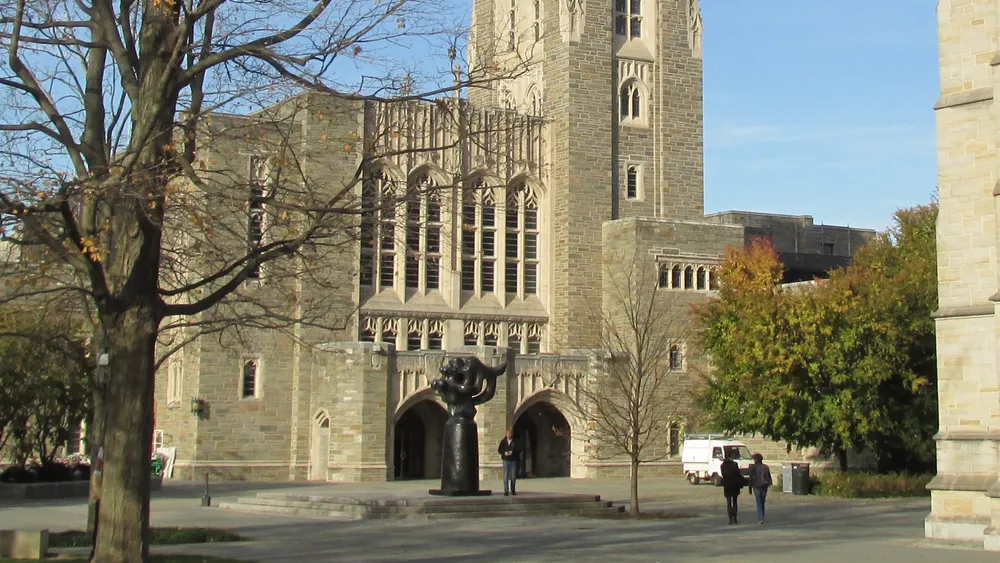DH at Princeton and Beyond: CDH Graduate Fellows Expand Their Horizons with help from Travel Grants
8 May 2019

CDH Graduate Fellows have so many opportunities to learn about how DH is practiced at Princeton. Throughout the spring semester, the current cohort of 10 graduate fellows met monthly to learn about and support each other’s projects, covering a vast range of subjects from conceptions of race, gender, and resistance, to 20th-century French music, to ancient Chinese texts. Each meeting provided glimpses of new ideas, tools and techniques so that, as a group, they gained valuable skills and insights not only from their own research but from their peers’ experiences.
Several fellows have elected to expand their DH education beyond Princeton over the summer, taking advantage of schools and bootcamps in locations as far-flung as Oxford, England, and Victoria, Canada, or as close to home as Philadelphia. The CDH has supported this training by awarding graduate fellows travel grants for their DH research:
Serena Stein (Ph.D. candidate, Anthropology)
Serena Stein’s research sits at the intersections of Anthropology and African Environmental History. Stein’s dissertation concerns foreign investments in land in Mozambique, as well as the robust history of South-South relations in politics, literature, film, music and architecture between former Portuguese colonies Brazil, Angola, and Mozambique. With her travel grant, Stein will attend the DReAM conference at the University of Pennsylvania to learn introductory text analysis techniques and conceptualize approaches to corpus analysis using Java, R and Python. Stein hopes to perform textual analysis on an archive of ethnographic fieldnotes collected across multiple researchers as part of her goal to “design a project in which textual analysis is used alongside photography, GIS mapping data, and ecological datasets to visualize the transformation of a rural landscape in northern Mozambique over the course of the 20th century, that relates theories of affect with anthropogenic environmental change.”
Kristen Starkowski (Ph.D. candidate, English)
Kristen Starkowski’s digital project compares the proportion of narrative attention that minor characters are given in Charles Dickens’s novels to the amount of attention that they are given in cheaper, unauthorized “spinoffs.” Starkowski will use her travel grant to attend the Digital Humanities Summer Institute (DHSI) workshop in Victoria, B.C., to learn a range of DH approaches, including textual analysis, social network analysis, and data mining. This training will enable Starkowski to select the best methodology for gathering and structuring data during her trip to archives in the U.K. later in the summer to work with original nineteenth-century documents.
Yangyou Fang (Ph.D. student, Spanish and Portuguese)
Yangyou Fang will be attending “Linked Data for Digital Humanities,” a workshop at the Digital Humanities at Oxford Summer School (DHOxSS) to learn theories, methods and tools to create and query linked data she plans to gather from her summer archival research in the General Archive of the Indies (AGI) in Seville, Spain. Fang’s interests lie in the early modern Spanish Pacific and in studies of cross-cultural engagement between Iberia, Latin America, the Philippines and East Asia. She hopes, through archival work and digital praxis, to recreate the intricately connected histories in the global early modern world.
The CDH is still offering travel grants for Princeton graduate students to attend DH workshops, summer schools, institutes or other training sessions to expand their technical or methodological skills, receive professional development training, and gain experience with the DH community.
Applications are accepted on a rolling basis throughout the calendar year, for training that will take place within six months of the award. Please expect a decision within four weeks of submission.
Applications should be sent to cdh-info@princeton.edu.